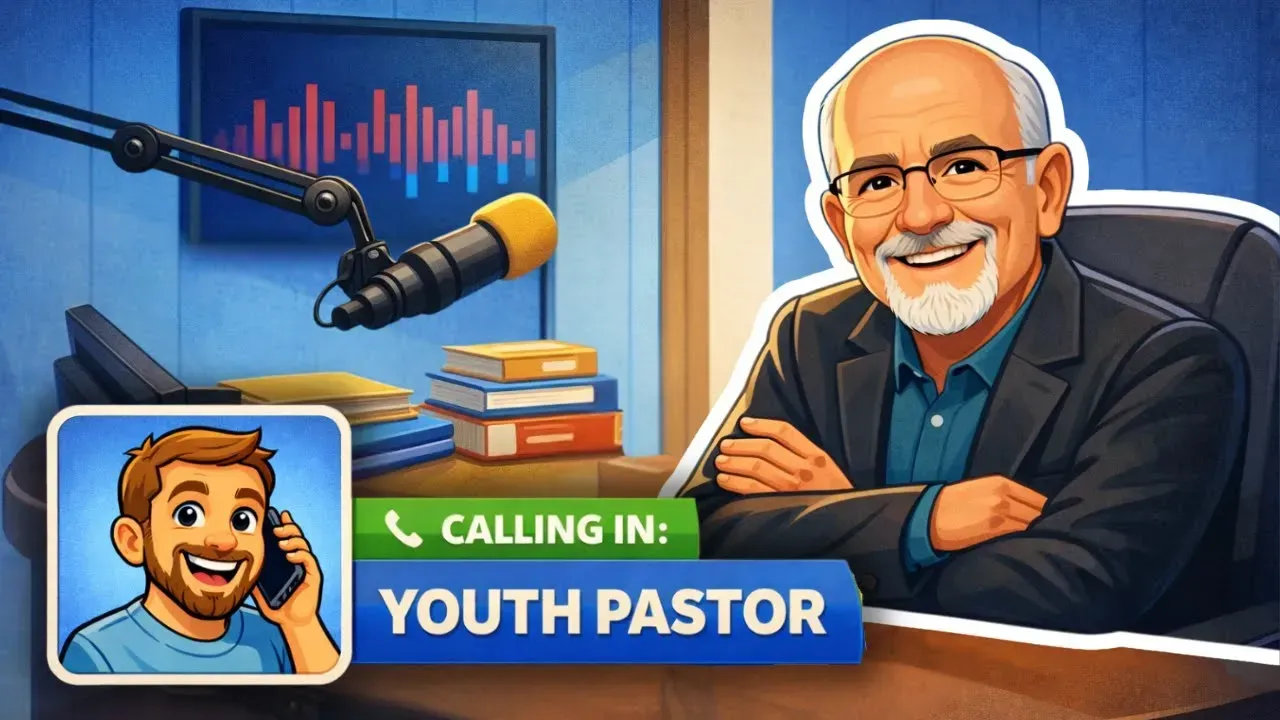3 SURPRISING Ways Tech Can BOOST Your Youth Ministry
Supercharge Your Youth Ministry: Embracing Technology for Discipleship
Check out the podcast here!
Many youth pastors still see technology as a threat, but for Gen Z, it's often their first point of contact with faith. When spiritual questions arise, Gen Z typically turns to YouTube, online searches, or Google, rather than a pastor. This means if we're not present in their digital world, someone else will be. Technology isn't a threat to discipleship; it can amplify it.
Turn Phones into Gospel Tools
The youth of today are constantly on their phones, and we can leverage this to spread the Gospel. While 78% of Christian Gen Z teens have had a faith conversation with a non-Christian in the past year, only 28% view digital conversations as evangelistic. This highlights a disconnect: they don't always realize a simple text can be a powerful tool for sharing biblical truth.
Think about it: people are often more willing to share openly via text because it gives them time to formulate their thoughts. Encourage your students to use their phones for "gospel tools" by:
- Simple Text-Based Prompts: Encourage students to share videos with friends and ask their thoughts, or simply ask, "Have you ever read the Bible?"
- Leveraging Prayer: Remind students that even praying for opportunities can lead to digital gospel conversations. A youth leader's friend once called him after receiving a text, saying, "It's really interesting you sent me that text because I've really been thinking about this a lot lately. Can we meet up and talk more about this?"
- The Life in Six Words App: This Dare to Share app trains students how to share the Gospel, tracks spiritual conversations, and helps them develop a "care circle" for those they're praying for and sharing with. It's designed for students and even translates the Gospel into over 22 languages!
Provide Spiritual Growth on Demand
Teens spend an average of 4.8 hours a day on social media. While we're not advocating for more screen time, the reality is that they are already there. So, when they're scrolling, are they encountering truth? If Christians don't engage in this digital space, we risk losing a generation. Just as past generations retreated from the arts, leading to "cheesy" Christian content, we must not make the same mistake with digital platforms.
Here's how to provide spiritual growth on demand:
- GotQuestions.org: This website offers over 700,000 biblically sound answers to questions, complete with scripture references. Encourage your students to use this as a go-to resource instead of general Google searches. Youth pastors can even use their "top 100 most visited articles" and "top 20 most frequently asked questions" to guide small group discussions.
- YouVersion Bible App & Read Scripture App (Bible Project): These apps offer countless Bible reading plans and audio Bibles. You can run devotionals in group chat formats, encourage daily engagement, and even foster peer accountability among students.
- Streetlight Bible App: This innovative audio Bible app features lo-fi hip-hop beats that are crafted to match the tone and narrative of the scripture, helping to keep younger listeners engaged.
- Social Media as Content Curation: Don't feel the need to create all content from scratch. Share relevant Bible verses, engaging Christian memes (like those from "trust god, bro"), and content from apps like YouVersion. This provides bite-sized pieces of truth for students throughout their day.
Cut Through the Chaos with Clear Communication
Gen Z's preferred communication method is texting. While churches often rely on apps or group platforms, texting is the most valued medium for 70% of Gen Z. This means we need to prioritize clear and concise communication that cuts through the noise of their busy digital lives.
Consider these tips for effective communication:
- Texting Platforms: Explore platforms like Gloo (which offers 10,000 free credits a month) for broad announcements. For improving your first-timer process with automated messages, Text in Church is a great option. Clearstream offers a mix of both. These platforms allow you to send messages directly to students and parents without requiring them to download a specific app, while still maintaining accountability and parental consent.
- ChatGPT as an Admin Assistant: Leverage AI tools like ChatGPT to create game ideas, draft parent texts or emails, and even generate discussion guides. This frees up youth leaders to spend more time on in-person discipleship. Remember to always proofread and double-check AI-generated content.
The ultimate goal of leveraging technology is to amplify in-person discipleship. Online success should not be the end goal, but rather a means to create more free time for youth leaders to spend with students, families, and parents. Just as Jesus' ministry was incarnation, our focus should remain on building personal relationships while wisely using technology to support and enhance that mission.
What are some ways your youth ministry is using technology to make disciples? Share your tips in the comments below!











